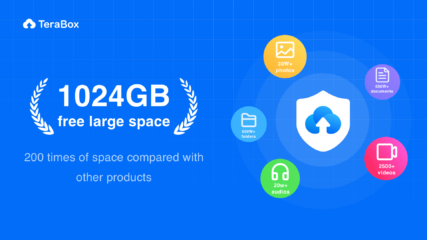Imagine being part of a team that effortlessly navigates through a sea of data, collaborating in real-time to uncover hidden insights. With Databricks, this scenario is a reality for many.
The Databricks Advantage: Not Just Another Data Platform
Have you ever wondered what makes Databricks stand out in the crowded world of data platforms? It's not just another tool in the shed. It's a comprehensive solution transforming how you handle big data and AI projects. Let's dive into why Databricks is a game-changer.
Seamless Integration with Apache Spark
First things first, Databricks integrates seamlessly with Apache Spark. But what does that mean for you? Imagine having a powerful engine that processes your data efficiently without the usual hiccups. Spark is known for its speed and scalability, and Databricks leverages this to offer you a robust data processing environment. It's like having a high-performance sports car that never breaks down.
With Spark at its core, Databricks ensures that your data analytics tasks are fast and scalable. Whether you're dealing with gigabytes or petabytes, Databricks has covered you. No more worrying about data bottlenecks or slow processing times.
Fostering Teamwork with Shared Notebooks
Collaboration is key in today's fast-paced world. Databricks understands this and offers shared notebooks for real-time collaboration. Think of it as a digital workspace where your team can brainstorm, experiment, and innovate. It's like having a virtual meeting room that's always open.
These shared notebooks are not just about writing code. They are about sharing ideas, visualizing data, and making data-driven decisions as a team. You can comment, edit, and run code together, all in real time. This feature truly revolutionizes teamwork.
"Databricks has revolutionized the way our team collaborates on big data." — John Doe, Data Scientist
Scalability for Large-Scale Data Needs
Handling large data volumes can be daunting, but not with Databricks. It offers scalability that supports horizontal scaling, a crucial need for managing large workloads efficiently. Imagine being able to expand your resources as your data grows without any hassle. That's the power of Databricks.
Whether you are running complex machine learning models or processing vast amounts of data, Databricks scales with your needs. It's like having an elastic band that stretches to accommodate whatever you throw at it. So you won't have to worry about outgrowing your data platform.
Unified Environment for Data Projects
Databricks is more than just a Spark platform; it provides a unified environment for all your data projects. Whether you're a data engineer, data scientist, or business analyst, Databricks has something for you. It's a one-stop shop for data engineering, machine learning, and analytics.
This unified approach means you don't have to juggle multiple tools or platforms. Everything you need is in one place, making your workflow smoother and more efficient. It's like having a Swiss Army knife for data projects.
Why Choose Databricks?
So, why should you choose Databricks? Here's a quick rundown:
Seamless integration with Apache Spark for high-performance data processing.
Real-time collaboration with shared notebooks, fostering teamwork.
Scalability to handle large-scale data needs effortlessly.
A unified environment for all your data projects, simplifying workflows.
In a nutshell, Databricks is not just another data platform. It's a revolutionary tool that changes how you work with data. Whether dealing with ETL processes, machine learning models, or data visualization, Databricks makes it easier and more efficient. It's the future of data analytics and is here to stay.
Innovative Use Cases of Databricks Across Industries
Have you ever wondered how industries manage their vast amounts of data? Enter Databricks, a game-changer in the world of data analytics. This platform, crafted by the brilliant minds behind Apache Spark, offers a unified environment for data engineers, scientists, and analysts. Let's dive into some of the innovative ways Databricks is transforming industries.
1. Enhancing ETL Processes with Efficient Data Handling
ETL stands for Extract, Transform, Load. It's a crucial process in data management. Imagine trying to organize a library without a catalog system. Chaos, right? That's where Databricks steps in. It streamlines ETL processes, making data handling a breeze.
Extract: Databricks efficiently pulls data from various sources, ensuring nothing is left behind.
Transform: It processes and refines this data, turning raw information into valuable insights.
Load: Finally, the data is loaded into a system to be accessed and analyzed.
By enhancing ETL processes, Databricks helps organizations save time and resources. It's like having a super-efficient librarian who knows exactly where every book belongs.
2. Facilitating Machine Learning Model Development and Deployment
Machine learning is the future. But developing and deploying models can be daunting. Databricks simplifies this process, acting as a catalyst for machine learning and AI applications.
With its robust tools, you can build models faster and efficiently deploy them. Need proof? Jane Smith, a Data Engineer, says,
"Databricks has been invaluable in deploying machine learning models swiftly and efficiently."
That's high praise!
Databricks also supports collaboration. Teams can work together in real time, sharing insights and refining models. It's like brainstorming with experts worldwide, all in one virtual room.
3. Improving Data Visualization and Dashboard Creation
Data is only as good as its presentation. Imagine trying to understand a complex report without any graphs or charts. Confusing, right? Databricks empowers visualization with its robust data analytics tools.
Create interactive dashboards that provide real-time insights.
Visualize data trends and patterns with ease.
Share insights across teams to foster informed decision-making.
With Databricks, you can transform raw data into compelling stories—like turning a black-and-white sketch into a vibrant painting.
Beyond the Basics: Other Use Cases
Databricks isn't just limited to ETL, machine learning, and visualization. It also plays a vital role in:
Generative AI Applications: Innovate and create with AI-driven solutions.
Data Governance and Compliance Management: Ensure your data meets industry standards and regulations.
These capabilities make Databricks a comprehensive solution for organizations leveraging big data and AI. It's like having a Swiss army knife for data analytics—versatile and indispensable.
Conclusion
In the ever-evolving world of data, staying ahead is crucial. Databricks offers the tools and capabilities to do just that. Whether you're enhancing ETL processes, deploying machine learning models, or creating stunning visualizations, Databricks has you covered. So, are you ready to harness the power of data with Databricks?
Scalability and Security: Ensuring Consistency and Governance
In today's fast-paced digital world, managing data effectively is crucial. You might wonder, how can you ensure your data systems are both scalable and secure? Enter Databricks, a platform designed to address these needs. Let's dive into how it supports scalability and security, ensuring consistency and governance for your organization.
Scalability: Handling Dynamic Workloads
Imagine your business is growing rapidly. More customers, more data. How do you keep up? This is where horizontal scaling comes into play. Databricks supports horizontal scaling, allowing you to efficiently manage increasing data loads. It's like adding more lanes to a highway to accommodate more traffic. With Databricks, you can scale out your infrastructure seamlessly, ensuring that your systems can handle large workloads without breaking a sweat.
Why Horizontal Scaling Matters
Efficiency: Handle more data without slowing down.
Flexibility: Adjust resources based on demand.
Cost-Effective: Pay for what you use, when you need it.
Horizontal scaling is not just a buzzword; it's necessary for businesses dealing with dynamic workloads. It ensures that your operations remain smooth and uninterrupted, even as your data needs grow.
Advanced Data Governance and Security Features
Security is a top concern for any organization. You need to protect your data from breaches and ensure compliance with regulations. Databricks offers advanced data governance and security features that give you peace of mind. As Sarah Johnson, an IT Security Manager, puts it,
"The advanced governance and security features of Databricks offer peace of mind to our organization."
Key Security Features
Access Control: Manage who can access what data.
Governance Tools: Ensure compliance with industry standards.
Encryption: Protect data both at rest and in transit.
These features ensure that your data is secure and compliant with various regulations. It's like having a robust security system for your digital assets, ensuring that only authorized personnel have access.
Disaster Recovery: Safeguarding Data Integrity
What happens if there's an unforeseen event, like a system failure or a natural disaster? You need a plan to recover your data. Databricks includes disaster recovery options that protect data integrity. Think of it as having a backup plan for your backup strategy.
Disaster Recovery Options
Data Backups: Regularly scheduled backups to prevent data loss.
Failover Systems: Automatic switching to a backup system in case of failure.
Data Replication: Duplicate data is stored in multiple locations for added security.
These options ensure that your data remains intact, even in adversity. Being prepared for the unexpected allows your business to operate smoothly.
Conclusion: A Unified Solution for Modern Data Needs
In conclusion, Databricks provides a comprehensive solution for organizations looking to manage their data effectively. Its support for horizontal scaling, advanced governance and security features, and robust disaster recovery options ensure your data systems are scalable and secure. Whether you are dealing with dynamic workloads or ensuring compliance, Databricks has you covered. It's not just about managing data; it's about doing so with confidence and peace of mind. So, are you ready to take your data management to the next level?



.png)